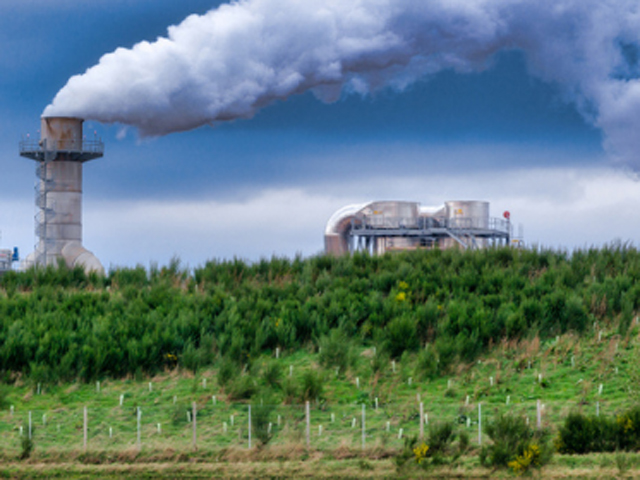
North West England: Developing a regional roadmap for industrial bio-revolution
Author: Claire Holland
Escalating societal and political concerns over climate change have bolstered significant global focus on cutting carbon dioxide emissions.
However, in a world still reeling from the effects of a global pandemic, development and implementation of effective resolution strategies are lacking. Profound change is needed to address damaging environmental, social, and economic repercussions of the current paradigm. In this blog, Dr Claire Holland discusses how we can meaningfully ‘green’ the economy, the potential that the North West has as a base for bio-industrial change, and how we can start these changes.
- The UK produces over 16 million tonnes of biomass waste per annum, ensuring year-round availability of resources, and opportunities for development of multi-dimensional, multi-feedstock, bio-based regional and local economies.
- Adopting circular bioeconomy models – involving sharing, leasing, reusing, repairing, refurbishing and recycling – can reduce carbon emissions and support economic growth.
- The North West should develop a regional roadmap for bio-industrial revolution that encompasses the entire supply and knowledge chain including engagement with large and small-to-mid-size manufacturing enterprises (SMEs), science parks, universities, and biorefineries in the region.
Why change? Why now?
As the UK emerges from the pandemic, we enter an especially important phase for industrial evolution. Organisations are considering post-pandemic and post-Brexit recovery options and investment pathways, macro-economic conditions, and climate change policies. COVID-19 caused the biggest economic slump in the UK since records began. During economic crises, government typically invests in infrastructure and supports conventional carbon-emitting industries. However, the UK’s commitments to reduce carbon emissions by 100% (relative to 1990) by 2050 has made this orthodox approach unpalatable. Instead, there seems to be a growing appetite for alternative, innovative, and sustainable investment opportunities.
Despite high-level discussion of support for a “green” economic recovery, there is the risk that decisions on substantial and meaningful change prioritising environmental-benefit will be deferred until economic stability is reached, further delaying transitions to more resilient bio-based options. If we wait until the status quo is restored, incentives to pursue substantial change may falter, perpetuating an economic model where long-term environmental benefit continues to be overlooked, and remains second to profit.
Meaningful “greening” of the recovery requires a significant change in both behaviour and production patterns. The adoption of circular bioeconomy models – involving sharing, leasing, reusing, repairing, refurbishing and recycling – is one way we could reduce carbon emissions whilst bolstering economic growth. However, with the pandemic also drawing attention to increased regional inequality, sustainability challenges, and economic, resilience there is a real need to shift to production regimes based more on local bio-based resources and dispersed production and less on fossil fuels and distant international sources.
So, what would an industrial biorevolution look like?
A feasible future vision for production in the UK involves supply chains that are substantially less fossil-fuel dependent, and more distributed and resilient, relying significantly on bio-based and sustainable native resources, with customisation to local industrial contexts, resources, and biodiversity. This can be achieved through the integration of innovative solutions and bio-based technologies in key markets – such as agriculture, biochemical production, energy, and infrastructure – either as bio-based drop-in replacements or bio-based products that can potentially introduce not just greater sustainability but new functionalities.
Whilst achievable, there are significant operational challenges to developing viable and scalable pathways, and for biomanufacturing and other bio-based production strategies, that need to be overcome. These challenges include applicability to regional conditions, feasibility, and economic, societal, and environmental sustainability, as well as stakeholder acceptance and associated institutional and policy issues.
The North West as a base for bio-industrial change
North West (NW) England has long been a powerhouse for industry in the UK. Despite major industrial restructuring in the 80s and 90s, the NW has built upon its traditional strengths – chemicals, textiles, shipping and engineering – and, by diversifying into modern and high technology sectors, has remained one of the largest manufacturing hubs in the UK.
The region houses a number of sectors, and has particular economic strengths and technical ability in: advanced engineering and materials: aerospace, automotive, and advanced flexible materials; biomedical; energy and environmental technologies; digital and creative industries; and business and professional services. The NW is abundant in pharmaceutical and chemical manufacturing, which account for 20% and 15% of the total manufacturing in the region respectively.
Another attractive asset in the NW is the broad availability of bio-based feedstocks. The UK produces over 16 million tonnes of biomass waste per annum, but biomass type and composition varies significantly between regions. The NW covers a large geographical area, with a diverse biomass supply. This ensures both year-round availability of resources, and opportunities for development of a multi-dimensional, multi-feedstock, bio-based local economy.
For example, lignocellulosic biomass (which is of interest for products from biofuels to biomaterials to production of phenolics and other specialty chemicals) could be obtained in the NW from agricultural and forestry waste, green municipal waste, and paper waste, drawing on both the rural areas of the NW like Lancashire and Cumbria, and the large metropolitan areas of Manchester and Liverpool.
This regional foundation is important because effective and sustainable bio-based regional transition depends on understanding localised industrial structures, capabilities, feedstocks, and bioeconomy, and how regional transition can be sustainably integrated with national and international bioeconomy resources and markets.
Establishing a roadmap for the development of bio-based, regional economies
In business and policy, a roadmap is a future-oriented strategic plan that identifies desired outcomes and sets out the steps and actions needed to achieve those results. Developing a regional roadmap for the industrial bio revolution – from feedstock to product, through the entire supply chain – in a multi-capability environment, such as the NW, would allow consideration of multiple development and implementation routes, for different feedstocks and sectors.
A regional roadmap would emphasise high-value bio-based production with active engagement with both large and small and medium-sized manufacturing enterprises, science parks (such as Alderley Park, Liverpool Science Park, and Citylabs), universities, the Manchester-based Future Biomanufacturing Research Hub, and biorefineries (e.g., Liverpool’s MicroBioRefinery) in the NW to assess specific bio-based transition pathways, develop implementation strategies, and link with implementation resources. While Government departments, such as BEIS and the Department of Levelling Up, are aptly qualified to develop and implement such a roadmap, given the regional focus and in depth understanding of local knowledge, expertise, and stakeholders required, Westminster is not the optimal choice to spearhead this initiative. Instead, the roadmap should be led by regional focus engagement organisations, such as the N8 Research Partnership, the Northern Powerhouse Partnership, or via a new collaborative effort between the major metropolitan organisations of the NW.
Roadmapping is a multi-faceted process that would require innovative and customised solutions and initiatives. There is a need to actively engage with public and private stakeholders to assess regional support structures, pinpoint gaps, and elaborate enhanced strategies for regional bio-based transition; prioritising technologies and feedstocks that can be most optimally integrated within a region’s specific industrial and environmental landscape to confer not only environmental but also economic and societal benefits. This requires considerations of specific bio-technology effectiveness and how universities, research and technology centres, industrial partners, and development organisations can integrate effectively to optimise use of available resources and expertise.
New initiatives to build the regional bioeconomy could be accelerated through the development of public bio-foundries (to support SME bio-manufacturing transition) and decentralised biorefineries (to expand regional capacities), to formulate a roadmap, accelerate a bio-based transition. While there is much that can be done at the regional level, it is also clear that shifting to a ‘greener’ and more bio-based economy requires supportive government incentives, subsidies, and taxation, specific policy changes at multiple levels, and support for intermediary scale-up and scale-out functions.
While specific to the NW, a regional roadmap would offer a model that can be adapted to other regions and the wider UK context. It will exemplify how bio-based transition can be advanced in the post-pandemic period based on a region’s specific economic, innovation, and resource landscape.
 Claire Holland is a Research Associate at the Manchester Institute of Innovation Research , Alliance Manchester Business School (AMBS), in the Responsible Research and Innovation Group working with the Manchester Synthetic Biology Research Centre (SYNBIOCHEM). She has a PhD in Biochemistry. Claire’s project “Build Back Better with Biomanufacturing ” received an AMBS 2020-2021 Research Support Fund Early Career Researcher award.
Claire Holland is a Research Associate at the Manchester Institute of Innovation Research , Alliance Manchester Business School (AMBS), in the Responsible Research and Innovation Group working with the Manchester Synthetic Biology Research Centre (SYNBIOCHEM). She has a PhD in Biochemistry. Claire’s project “Build Back Better with Biomanufacturing ” received an AMBS 2020-2021 Research Support Fund Early Career Researcher award.
This article was first published by Policy@Manchester, The University of Manchester’s policy engagement unit. Policy@Manchester aims to impact lives globally, nationally and locally through influencing and challenging policymakers with robust research-informed evidence and ideas. Visit the Policy@Manchester blog site and read the original blog here.

0 Comments